Cold Start Problem Recommender System
Cold start problem recommender system. Since both approaches assumption are based upon users ratings history this problem can significantly affect negatively the recommender performance due to the inability of the system to produce meaningful. The Cold Start Problem originates from the fact that collaborative filtering recommenders need data to build recommendations. Typically if Users who liked item A also liked item B the recommender would recommend B to a user who just liked A.
14 Semantic-based Recommender Systems The traditional solutions for the cold start problem are based on the popular Content- based Filtering CBF approaches. A recommender system RS aims to provide personalized recommendations to users for specific items eg music books. Addressing this problem has been the primary focus of various studies in recent years.
Another type of problem is when the data model of a particular system requires connections between objects. To cold start the user we can start with demogaphic filtering and slowly shift to content filtering. Technically this problem is referred to as cold start.
Solving the problem of cold items. Popular techniques involve content-based CB models and collaborative filtering CF approaches. Recommender system is an applicable technique in most E-commerce commercial product technical designs.
Schein 22 proposed a method by combining content and collaborative data under a single. The Cold Start Problem. In that case new objects will not operate normally until those connections are made.
The problem is so notorious that almost every industrial practitioner needs to resolve this issue when building recommender systems. We adopt a mechanism that takes into. Despite that much research has been conducted in this field the cold-start problem is far from solved.
This is well known problem with recommender systems. Most cold-start problem solvers need some kind of data input.
However Arabic language is the sixth-most-spoken language in the world Arabic text in calendars has not been.
These approaches build user profiles by associ- ating their preferences with the semantic attributes of the item content 50 51 52 6 53 54. Despite that much research has been conducted in this field the cold-start problem is far from solved. Cold-start problem which is the inability to make accurate recommendations due to the unavailability of enough information about users preferences is one of the challenges of recommender systems. In this paper we propose a novel approach to solve new user cold start problem in recommender system applying collaborative filtering. For every recommender system its required to build user profile by considering her preferences and likes. Famous recommender system techniques such as. Technically this problem is referred to as cold start. Facing this problem recommender systems have several methods to overcome the difficulties posed by the initial lack of meaningful data. However Arabic language is the sixth-most-spoken language in the world Arabic text in calendars has not been.
Schein 22 proposed a method by combining content and collaborative data under a single. Technically this problem is referred to as cold start. It is prevalent in almost all recommender systems and most existing approaches suffer from it 22. Most cold-start problem solvers need some kind of data input. Cold start problem is that problem where system is not able to recommend items to users. The Cold Start Problem. 14 Semantic-based Recommender Systems The traditional solutions for the cold start problem are based on the popular Content- based Filtering CBF approaches.

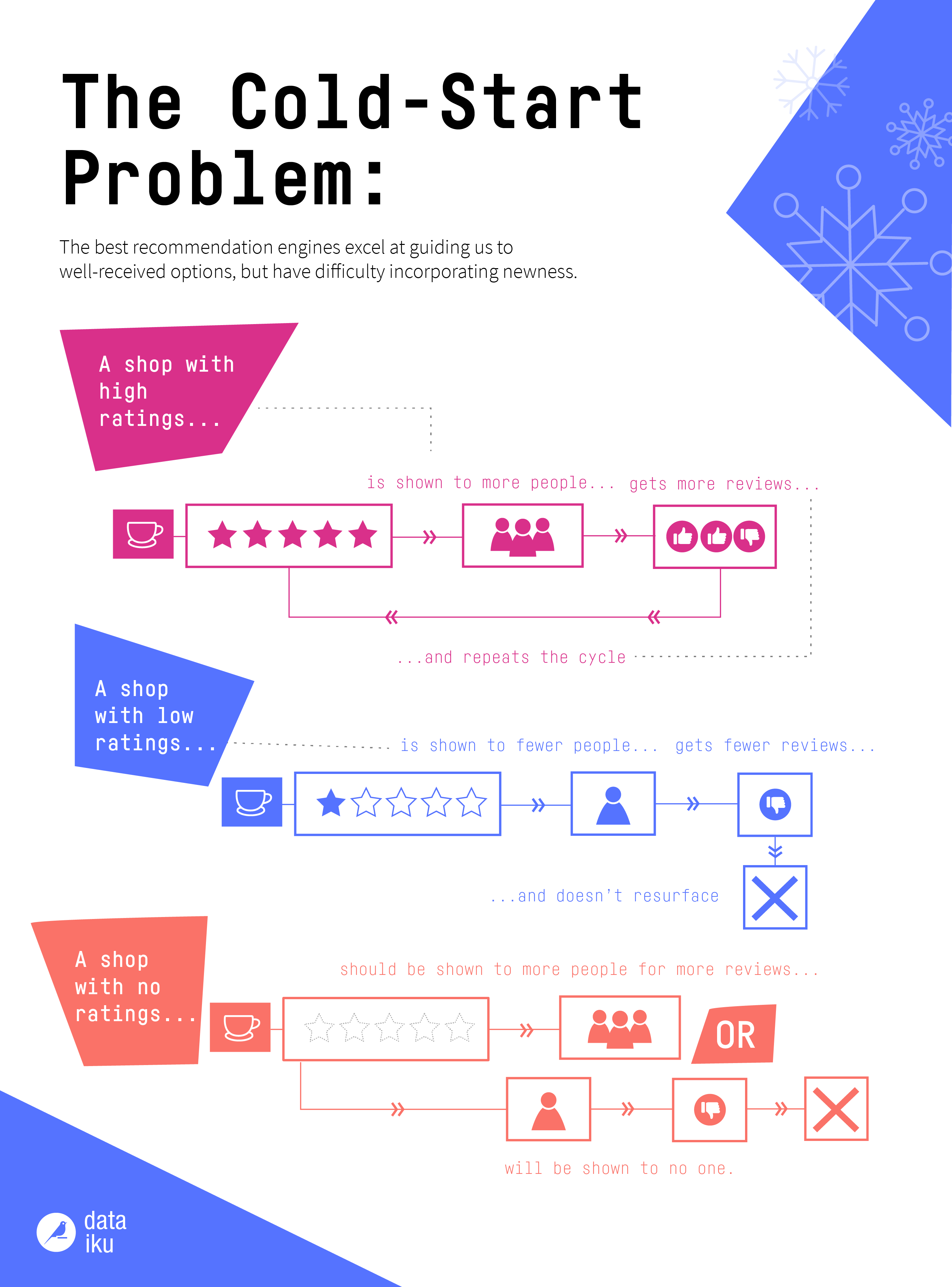



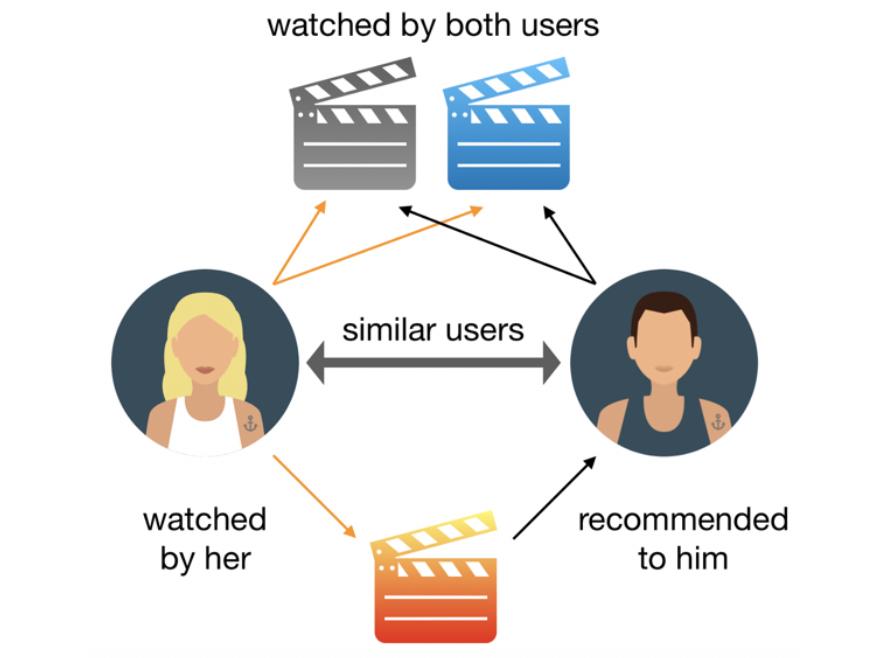

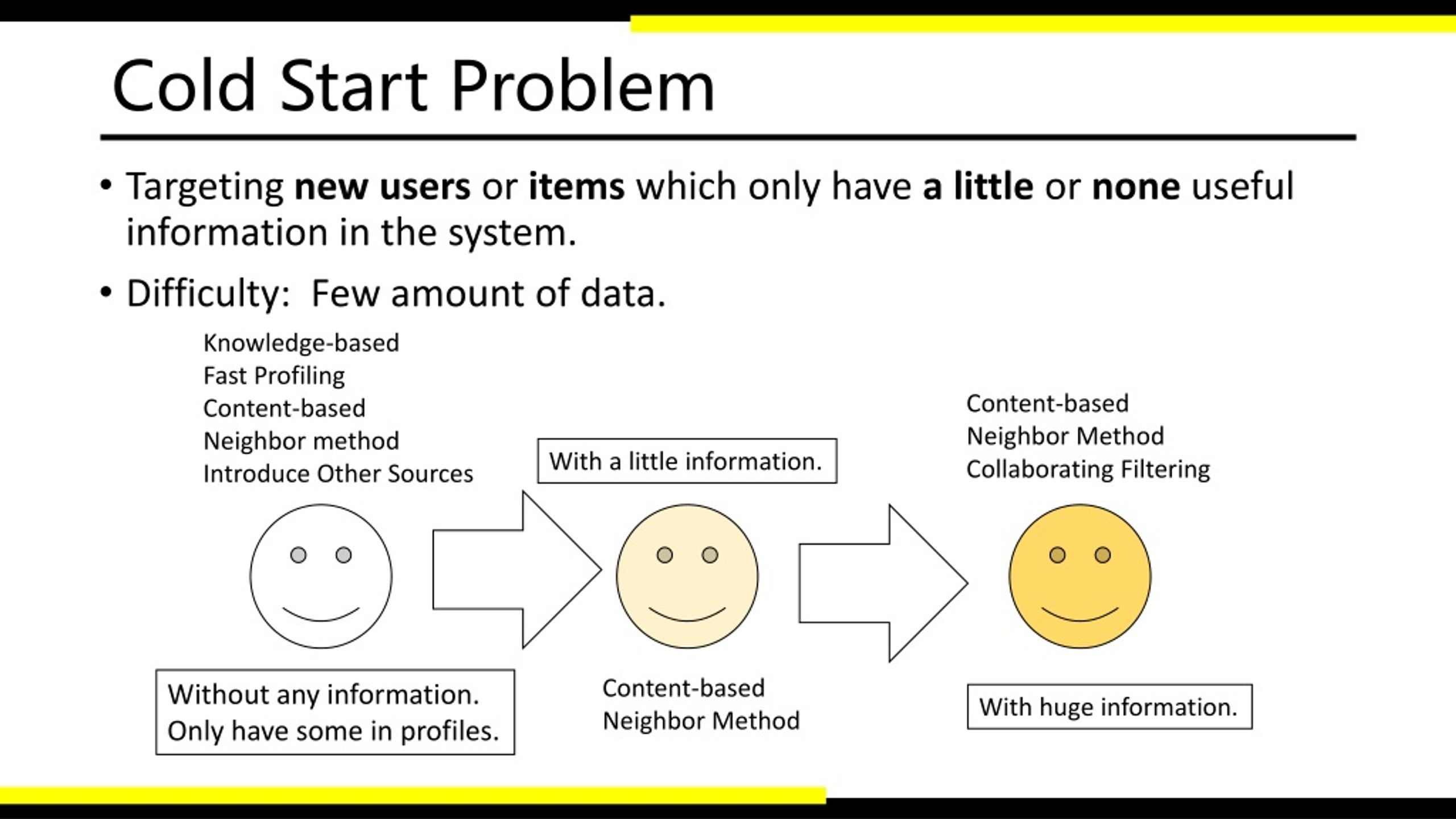







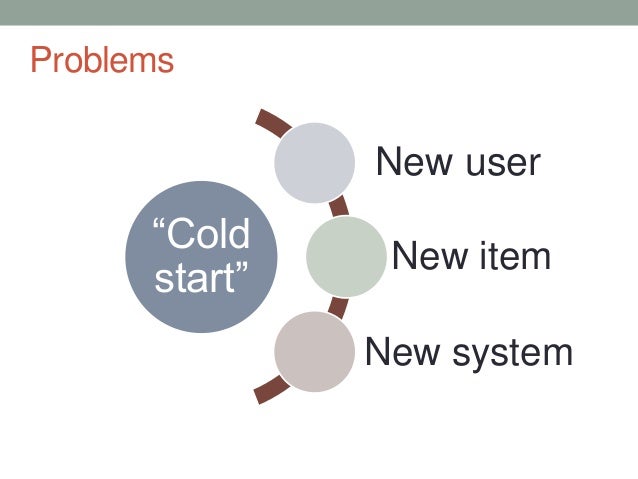



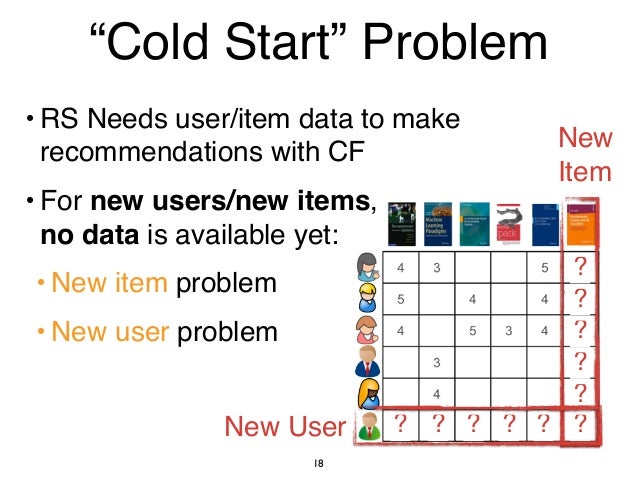

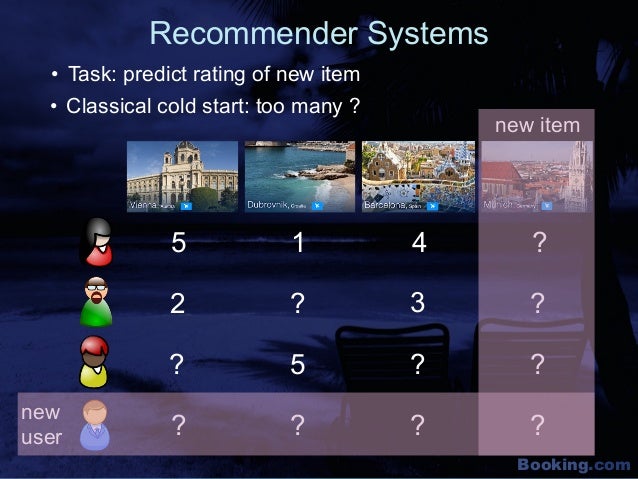

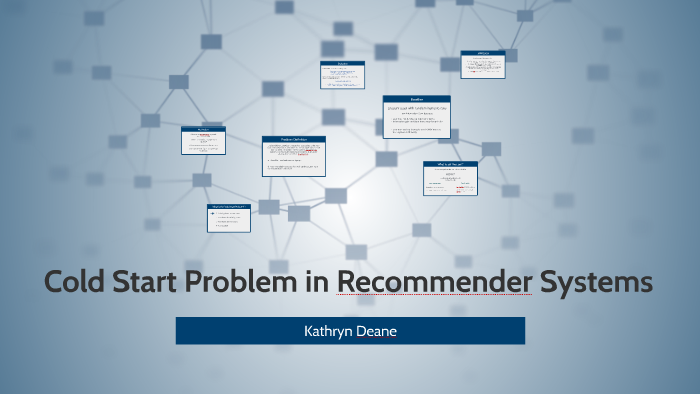





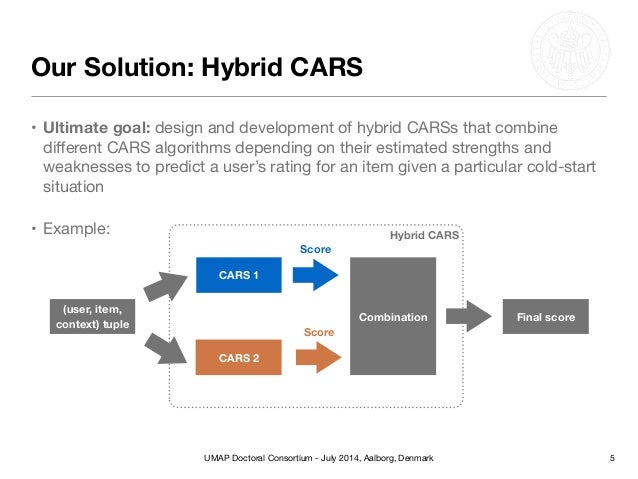


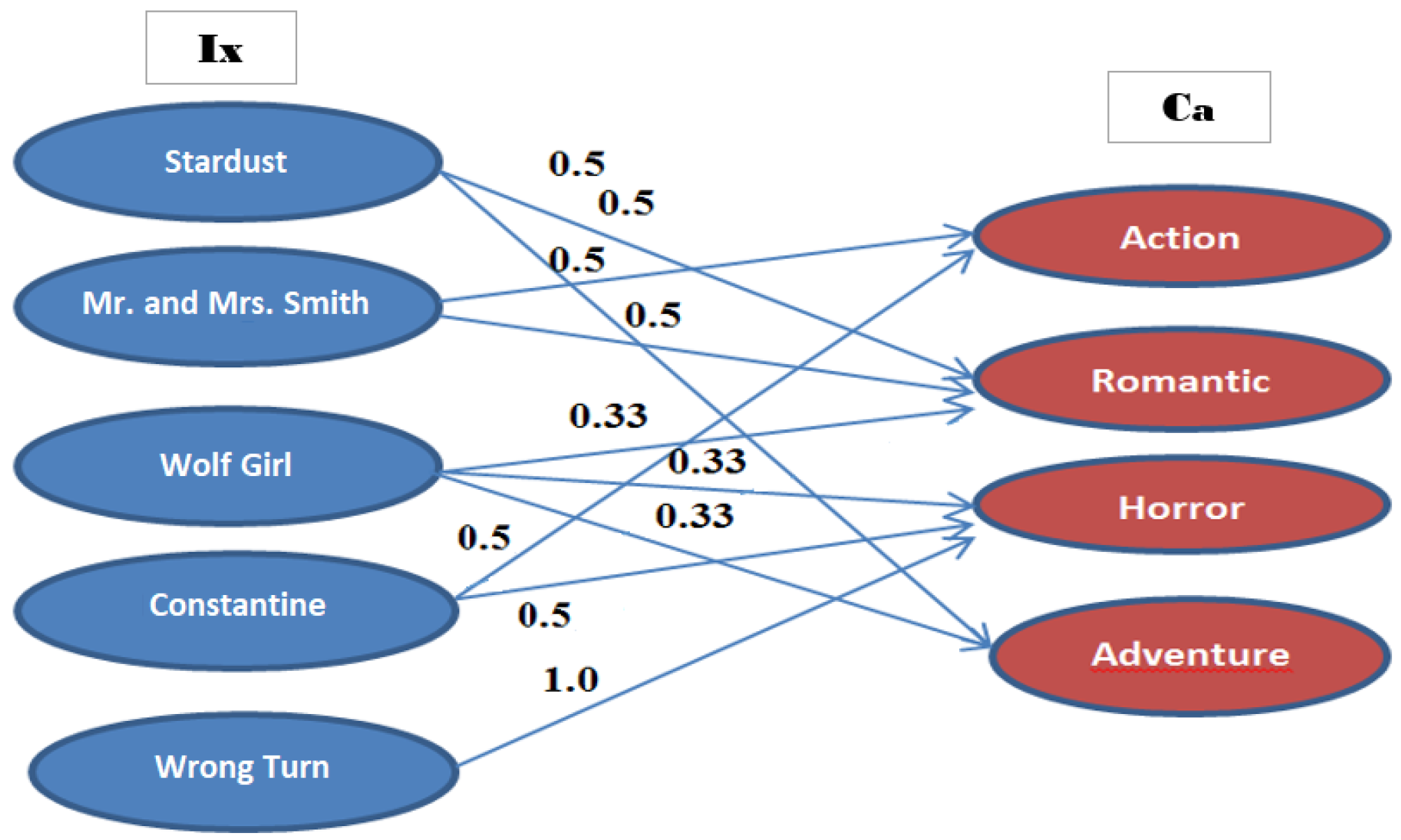










Post a Comment for "Cold Start Problem Recommender System"